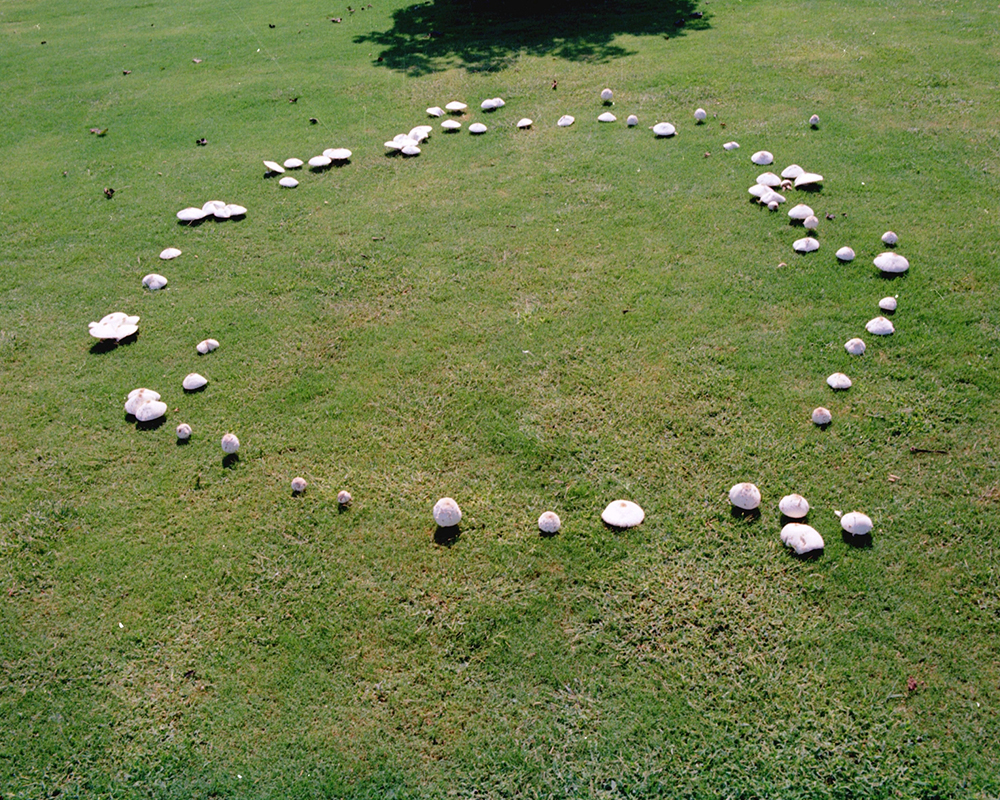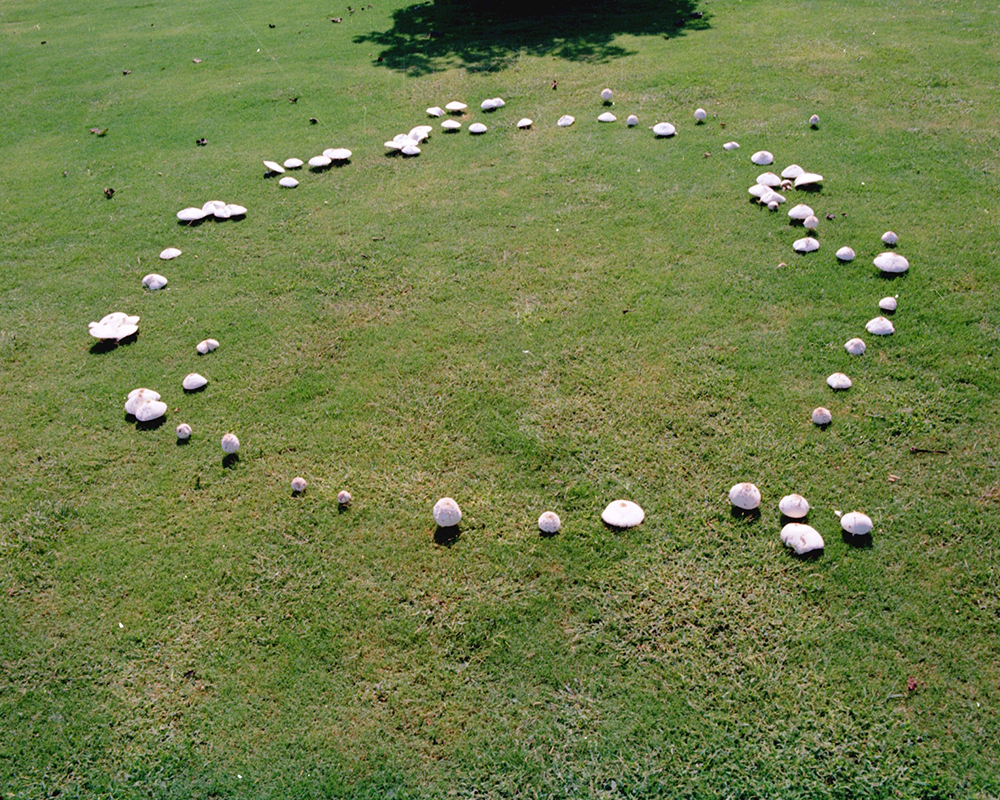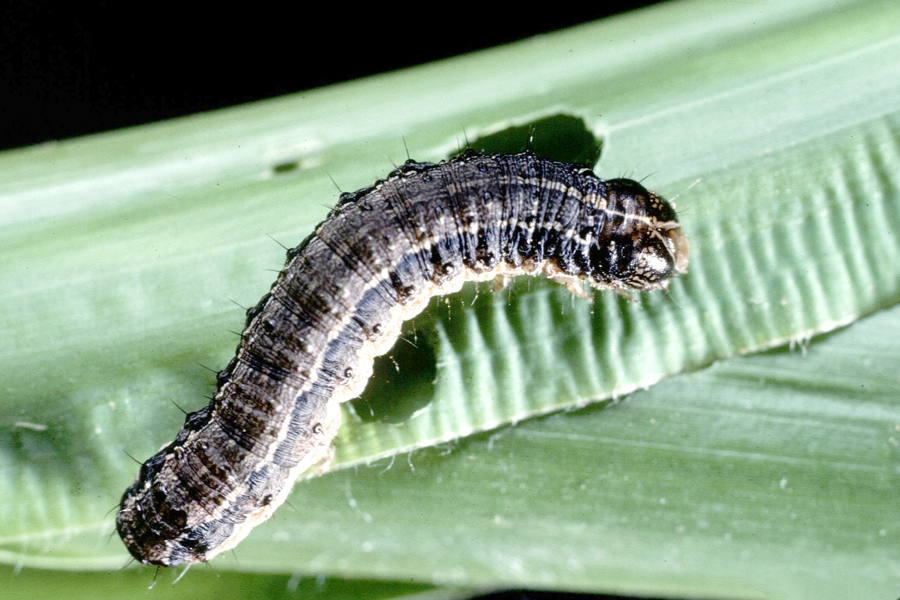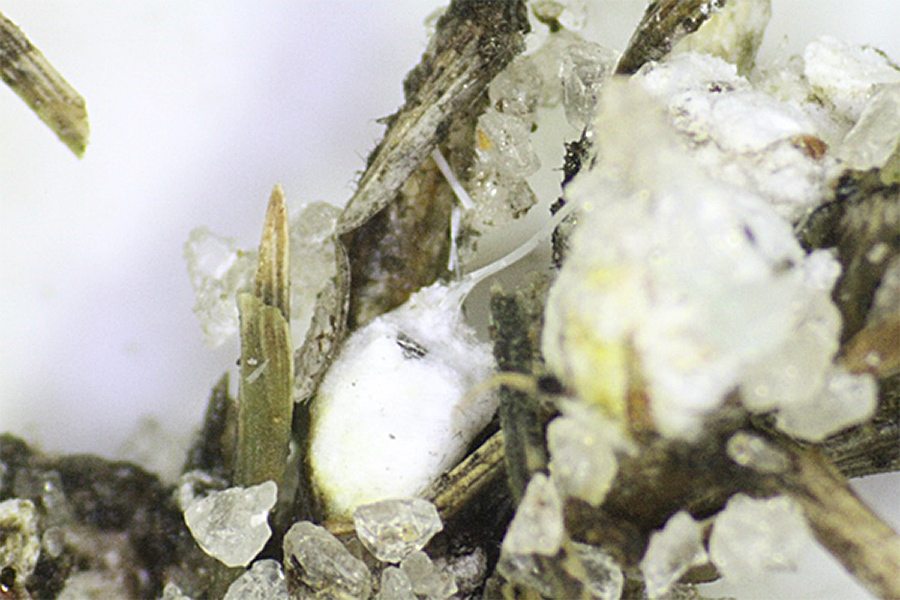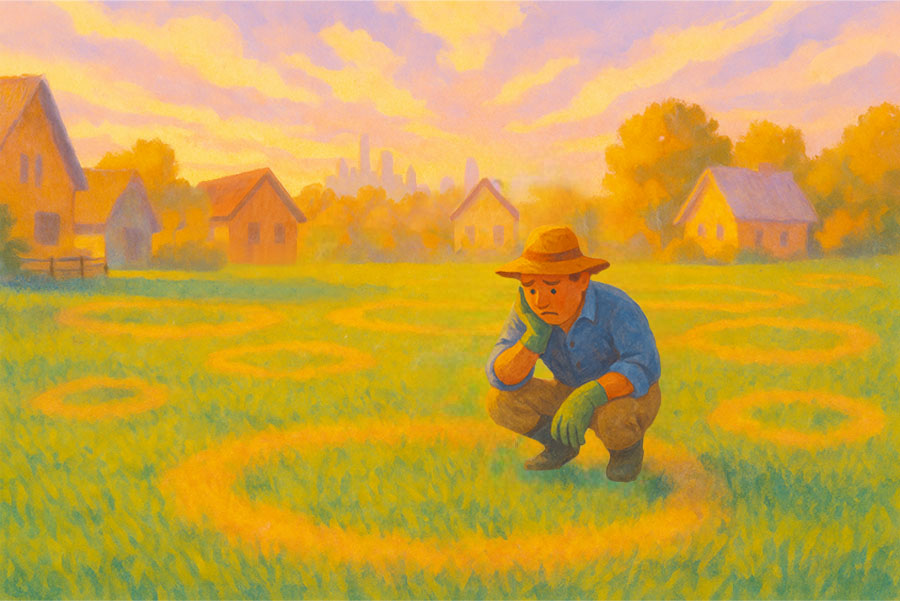Many residents have noticed mushrooms popping up in lawns and landscapes this season. When the “fungus among us” forms a circle or arc pattern, it’s commonly known as a fairy ring. According to medieval folklore, they were thought to appear after a band of fairies had danced in a circle. In some cases, fairy ring mushrooms can cause turfgrass discoloration or abnormal growth in lawns.
More than 50 different mushroom species can cause fairy rings. Fairy ring mushrooms are decomposers that grow in soil with high levels of organic matter and in areas where trees were recently removed. Old tree stumps, logs and roots that are buried in the soil begin to decay and are colonized by various mushrooms.
Growths of fairy ring fungi begin in the center of a ring (e.g., near a tree stump) and expand outward in a uniform, circular pattern over time. Mushrooms might only be visible during periods of wet weather, particularly in the fall.
Fairy rings can grow as large as 15 feet in diameter and cause the grass to have a different color or texture than the grass outside the ring. Half arcs or semicircular ring patterns can also occur. Depending on the conditions, grass with fairy rings can be denser, greener and faster growing, or browner and drier than surrounding grass.
The good news is that fairy ring mushrooms do not typically cause the grass to die in home lawns. These mushrooms are mainly viewed as a nuisance and will often disappear as weather conditions change. Waiting for them to disappear naturally is usually the best approach. However, they may reappear during the next rainy season or return for many years, depending on how much wood or organic debris is buried in the soil.
If you want to try to manage fairy ring mushrooms, spraying a fungicide is typically not effective. Consider routine core aeration of your lawn, which can improve drainage and reduce thatch buildup that harbor fungi. Fall is an excellent time to aerate tall fescue lawns.
In some cases, fairy rings cause the lawn to form a dense, green ring of grass due to the decay of organic matter. In this situation, adding nitrogen to the surrounding lawn can help green up your grass and mask symptoms of the problem.
Mushrooms can be concerning if you have small children or pets that might accidentally eat them. Discourage children and pets from eating mushrooms, as they may be poisonous. I taught my son at a young age that mushrooms are fun and interesting to look at, but we should never touch or eat them unless they come from a grocery store. The majority of mushrooms might not be lethal, but they could cause severe gastrointestinal distress.
If mushrooms are problematic, consider raking or hand removing the mushrooms with gloves and disposing them in the garbage.
For more information, see University of Georgia Cooperative Extension Bulletin 1233, “Turfgrass Diseases in Georgia: Identification and Control.”
